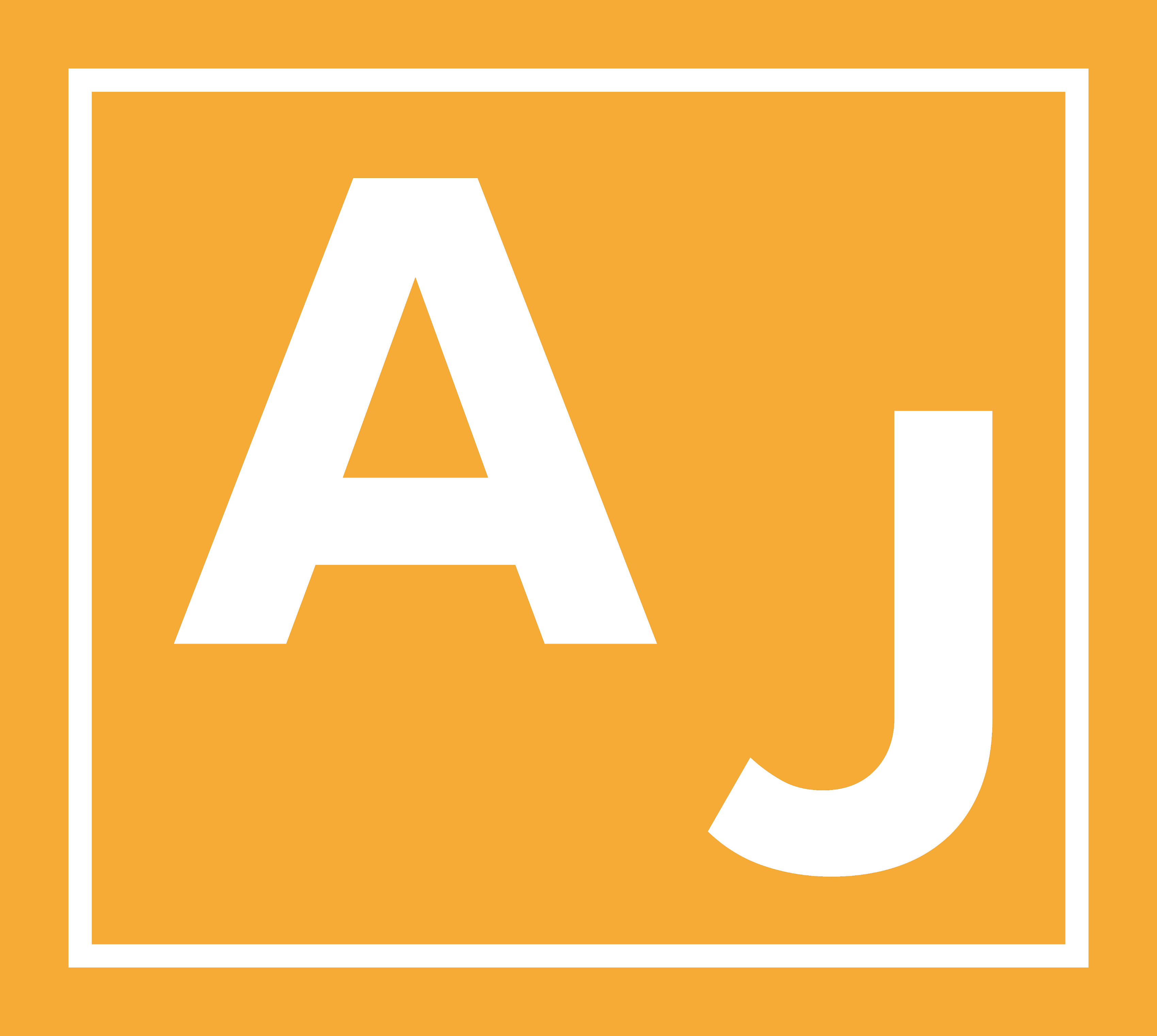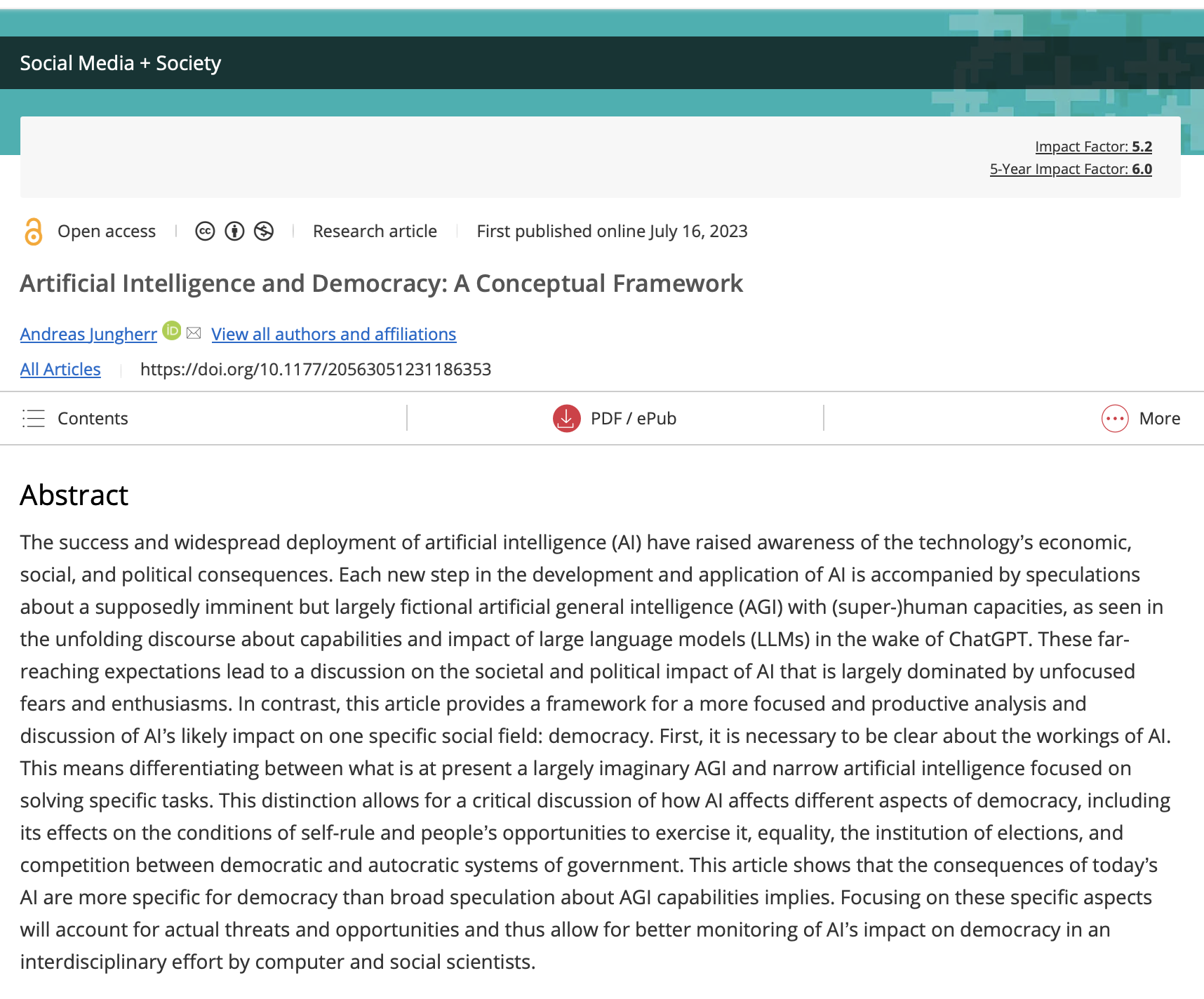In a new article for Social Media + Society, I discuss the role of artificial intelligence (AI) for democracy.
The article introduces a new conceptual framework for analyzing the functioning and impact of AI in democracy.
AI can change the conditions, practice, and conceptions of democracy on four levels:
Many of these developments lie in the future. And it remains open whether these AI-related influences strengthen or weaken democracy.
But in order to contribute to the strengthening of democracy, it is important that the social sciences conceptualize the role of AI in democracy early in the process, observe its development and co-shape its use and governance.
The article follows up on an article with Ralph Schroeder about the role of AI in the public arena.
The article is part of the larger project “Communicative Power in Hybrid Media Systems”, which has received generous funding from the VolkswagenStiftung.
Abstract: The success and widespread deployment of artificial intelligence (AI) have raised awareness of the technology’s economic, social, and political consequences. Each new step in the development and application of AI is accompanied by speculations about a supposedly imminent but largely fictional artificial general intelligence (AGI) with (super-)human capacities, as seen in the unfolding discourse about capabilities and impact of large language models (LLMs) in the wake of ChatGPT. These far-reaching expectations lead to a discussion on the societal and political impact of AI that is largely dominated by unfocused fears and enthusiasms. In contrast, this article provides a framework for a more focused and productive analysis and discussion of AI’s likely impact on one specific social field: democracy. First, it is necessary to be clear about the workings of AI. This means differentiating between what is at present a largely imaginary AGI and narrow artificial intelligence focused on solving specific tasks. This distinction allows for a critical discussion of how AI affects different aspects of democracy, including its effects on the conditions of self-rule and people’s opportunities to exercise it, equality, the institution of elections, and competition between democratic and autocratic systems of government. This article shows that the consequences of today’s AI are more specific for democracy than broad speculation about AGI capabilities implies. Focusing on these specific aspects will account for actual threats and opportunities and thus allow for better monitoring of AI’s impact on democracy in an interdisciplinary effort by computer and social scientists.
Andreas Jungherr. 2023. Artificial Intelligence and Democracy: A Conceptual Framework. Social Media + Society 9(3): 1-14. doi: 10.1177/20563051231186353.

